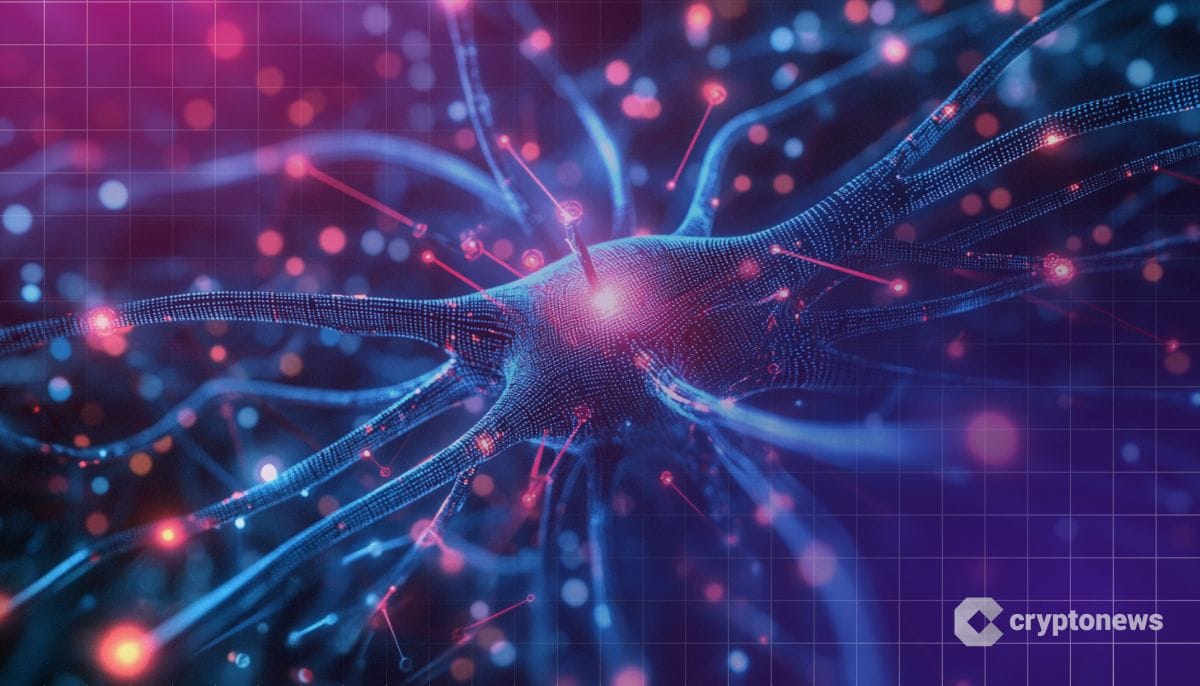Last updated:
 Why Trust Cryptonews
Why Trust Cryptonews

Coinbase CEO Brian Armstrong has announced the successful completion of the first cryptocurrency transaction managed entirely by artificial intelligence (AI).
In a recent post on X, the crypto boss shared that AI bots executed the transaction without human intervention.
The transaction involved one AI agent, essentially a bot designed to perform specific tasks, using cryptocurrency tokens to interact with another AI agent.
AI-to-AI Transaction Intended to Acquire AI Tokens
The goal of the AI-to-AI transaction was to acquire AI tokens—data strings that allow algorithms to learn from and adapt to new information.
“They used tokens to buy tokens,” Armstrong wrote.
Armstrong pointed out that one of the major hurdles for AI agents today is their inability to conduct transactions.
Without the capability to make payments, these AI systems struggle with routine tasks like booking travel arrangements or managing social media activities beyond content creation.
“AI agents cannot get bank accounts, but they can get crypto wallets,” Armstrong noted, adding that these AI-driven transactions on Coinbase’s Base platform are instant, global, and free of charge.
“This is an important step to AIs getting useful work done. Today if you give an AI agent a task and come back in a few days or hours, it can’t get useful work done.”
The development is part of a broader trend within the crypto industry to empower AI agents with transactional capabilities.
Earlier this month, Skyfire, a blockchain development firm, launched a payment platform allowing AI agents to autonomously manage and spend money.
Similarly, Web3 infrastructure firm Biconomy is integrating AI agents to enable on-chain transactions, offering a new layer of authorization that allows users to delegate trading activities to AI.
AI Agents Should Have Crypto Wallets
Last week, Armstrong suggested integrating large language models (LLMs)—the underlying technology behind AI systems like OpenAI’s ChatGPT—into the crypto ecosystem.
He argued that enabling AI agents to hold crypto wallets could significantly enhance their utility, allowing them to participate in the economy on behalf of humans.
In June last year, Coinbase released a research report stating that the intersection of artificial intelligence and blockchain represents a major opportunity for entrepreneurs.
At the time, the largest US-based cryptocurrency exchange highlighted the benefits of combining both techs to create new solutions for societal challenges presented by AI.
“As applications within AI and blockchain mature, the disruptions these technologies represent may lead to areas of collaboration and the emergence of new use cases for crypto to help address specific societal challenges posed by AI,” David Duong, head of research at Coinbase, said.
The report mentioned several potential use cases that combine both AI and blockchain technology.
In the first place, it said decentralized data marketplaces could help generative AI meet the demand for a verified and diverse set of data to train its models.
Similarly, token-based incentive mechanisms could improve the quality of data sourced from those marketplaces.
Other use cases include providing computational power from decentralized networks that utilize graphics processing units for AI projects to train their models, improving data authenticity, and making AI algorithm’s opaque decision-making process more auditable.





